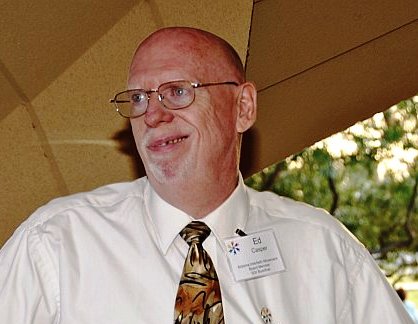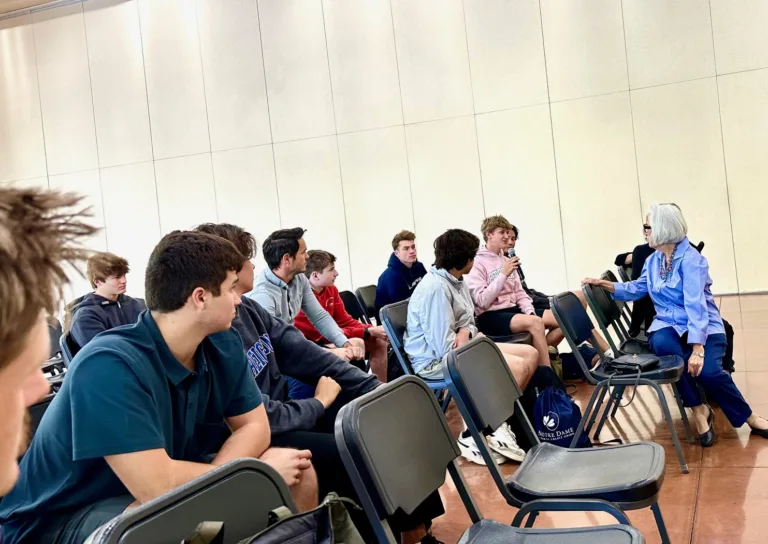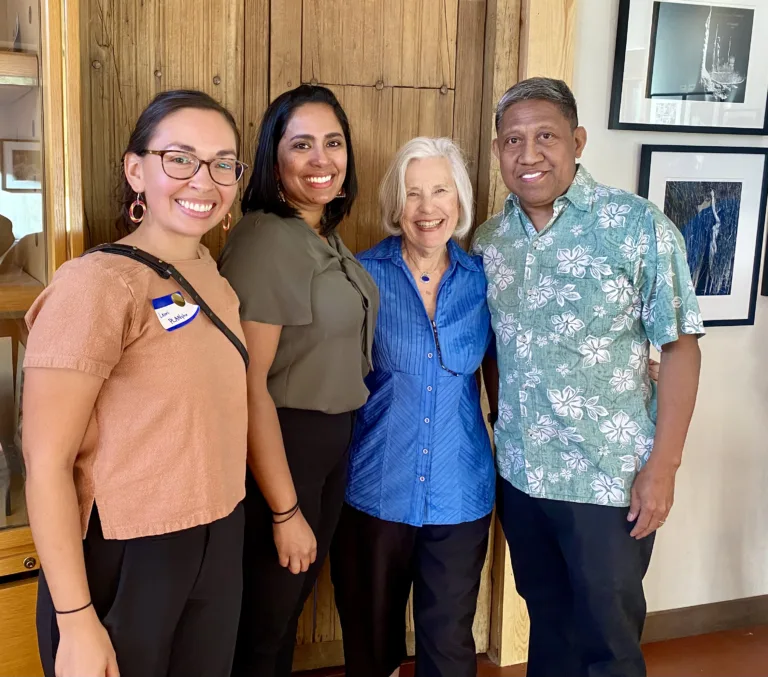FAITH MATTERS EDWARD CASPER
Buddhist group devoted to peace, personal growth
Around 500 B.C. in what is now Nepal, a young man named Gautama Siddhartha abandoned his sheltered, princely life to find a way to deal with the inescapable sufferings all people face — birth, aging, sickness and death. After enduring many austerities, the story goes that he meditated under a large tree and awakened to the way to handle life’s adversity.
For 50 years following his enlightenment, the man now known as the Buddha (Awakened One) traveled throughout India, tailoring his message to his listeners’ needs. His methodology has sparked a vast array of interpretations that have led to the formation of countless Buddhist schools. However, in Chapter 16 of the Lotus Sutra, Gautama’s intent is clearly revealed: “At all times I think to myself: How can I cause living beings to gain entry into the unsurpassed way and quickly acquire the body of a buddha?”
In 13th-century Japan, a young monk, after exhaustive study and contemplation, identified the Lotus Sutra as Gautama’s essential teaching, and its title, Myohorenge- kyo, as the sutra’s heart. Based on this realization, the monk renamed himself Nichiren (Sun Lotus) and established the practice of chanting a mantra-like version of the sutra’s title — Nam-myohorenge- kyo — as the way for people to bring forth the enlightened life state (buddha nature) they inherently possess.
It was a time of great upheaval and suffering in Japan. Driven by the Buddhist teaching of life’s interconnectedness and the parallel idea that one’s practice should include compassion for others, Nichiren spoke out.
He was critical of the country’s repressive feudal government and the Buddhist schools that supported it. In addition, his message of self empowerment wasn’t well-received by those in authority. Nichiren’s activism drew relentless persecution, numerous assaults, a near beheading, and exile to Sado Island.
Nichiren was a prolific writer. He authored meticulously researched treatises and commentaries on Buddhism and the Lotus Sutra, as well as heartfelt letters to his followers.
This contrasts with most early religious teachings that were spread by word of mouth before being written down. Some of Nichiren’s original manuscripts still exist.In 1930, Tsunesaburo Makiguchi and his disciple Josei Toda formed a teachers organization called the Soka Kyoiku Gakkai (Value-creating Education Society) around the proposition that education should nurture each student’s full potential. Over time, the group increasingly dedicated itself to fostering personal growth and the resulting betterment of society based on Nichiren’s teachings.
During World War II, Japan’s military government suppressed dissent. Mirroring Nichiren’s resolve, Makiguchi and Toda refused to compromise their beliefs and accept the Shinto Talisman in support of the war effort. Both men were branded as “thought criminals” and imprisoned.
Makiguchi died while incarcerated, while Toda experienced a profound awakening — that the buddha nature is life itself. Toda’s heightened awareness that life is paramount reinforced his view that religion’s purpose is to enhance people’s wellbeing and intensified his commitment to personal growth, nuclear disarmament and world peace.
After the war, the Soka Kyoiku Gakkai was renamed Soka Gakkai (Value-creating Society) and quickly grew. In 1960, led by Toda’s protege Daisaku Ikeda, the group formally expanded its worldwide outreach. And in 1975, the umbrella group Soka Gakkai International was formed, with each local organization retaining its own identity.
Today’s SGI is a global, socially engaged Nichiren Buddhist movement found in 192 countries and territories. Each day, its members strive to manifest their inherent potential and contribute to their communities in their own unique ways.
The SGI’s efforts to help build an enduring culture of peace are based on an unwavering commitment to education, dialogue and nonviolence grounded in the understanding that personal growth, individual happiness and a compassionate, peaceful world are woven of the same cloth.
SGI President Daisaku Ikeda puts it simply: “Humanity’s collective mission in the cosmos lies in the practice of compassion.”
Details: Soka Gakkai International USA Phoenix Center, 1930 E. Myrtle Ave. www.SGI.org and 602-861-1313.
Edward Casper is AZIFM Interfaith Council representative for SGI Buddhism.
copyright Arizona Republic, 2018







